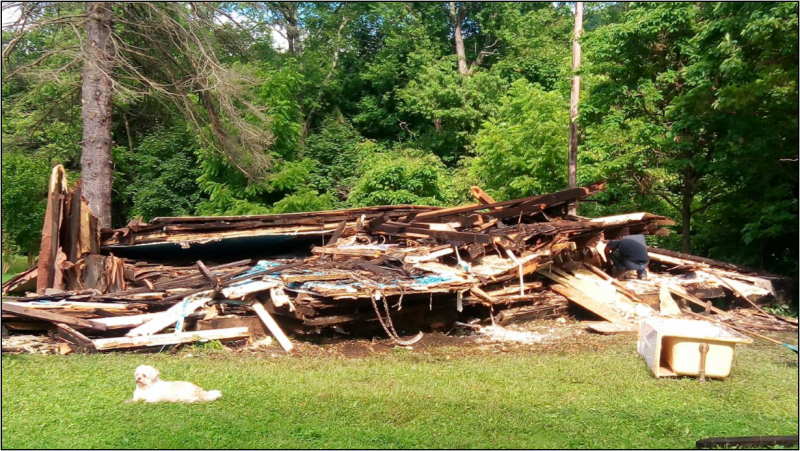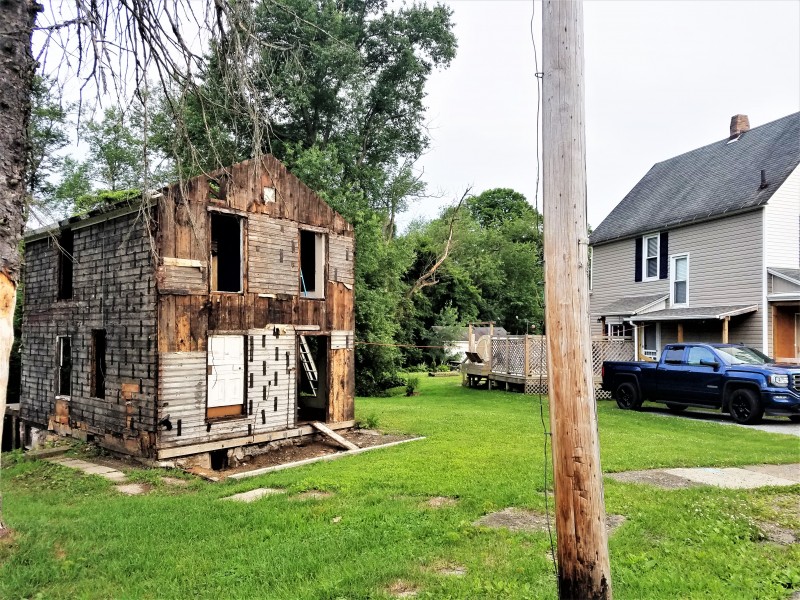Blight seems to be a frequently talked about subject these days. Common in our rural communities, economic blight is the visible and physical decline of a property, neighborhood, or city due to a combination of economic downturns, residents and businesses leaving the area, secular declines in real incomes, and the cost of maintaining the quality of older structures.
Most would agree that a blighted house will impact a neighborhood, beyond the obvious unattractiveness and potential lowering of property values of proximate homes, by taking away the motivation of others to maintain their properties or make improvements. Blight in Venango County was propelled in the 1980’s when the out-migration of many businesses lead to consistent population decline, which has continued for nearly four decades. A 2009 housing study revealed that Venango County has a significant overage of homes, with twice as many as needed to support median income families.
Addressing th is overage is challenging and expensive, but without a doubt necessary. The burden typically falls on the local municipality, once a property has declined to the extent that rehabilitation is unrealistic. The sad alternative is that properties fall into the hands of absentee owners, slumlords, or those who use the building for illegal activities. The cost of demolishing a home is often more than $15,000.
is overage is challenging and expensive, but without a doubt necessary. The burden typically falls on the local municipality, once a property has declined to the extent that rehabilitation is unrealistic. The sad alternative is that properties fall into the hands of absentee owners, slumlords, or those who use the building for illegal activities. The cost of demolishing a home is often more than $15,000.
Maintaining the housing stock of a community is good for business! With the surge in local hiring, there is a renewed interest in attracting people to relocate to Venango County. Those looking to work here place high priority on living in clean, attractive, and, most importantly, safe neighborhoods. While home rehabilitation may not obviously seem like economic development, communities that can provide good housing stock are most likely to attract workers.
Recognizing this reality, the Venango County Planning Commission turned its attention to getting ahead of potential blight by securing a HOME grant in 2012. Specific to the communities of Rouseville and Clapp Farm (in Cornplanter Township) nearly $500,000 was directed to the rehabilitation of owner-occupied homes. Work was completed by 2016. Projects that qualified for funding were prioritized by “life safety,” such as roof, electric, heating, and necessary structural repair.
In 2014, the County formed a Land Bank, which empowers this authority with first option to purchase homes sold at tax sale, done typically at the recommendation of the local municipality. Once owned by the Land Bank, the property can be torn down or, in some cases, identified for rehabilitation, with oversight to ensure responsible use of the building. To date 23 properties have been secured by the land bank, preventing them from further decay.
preventing them from further decay.
This year, the Planning Commission hired Josh Sterling as a Community Development Planner—a new position. Josh will focus his attention on Community Development Block Grant (CDBG) program funds, which can be directed to activities related to blight. The Planning Commission is responsible for administering the CDBG funds received by Cranberry Township, Sugarcreek Borough and Venango County. Additionally, the Commission has applied for a $300,000 HOME grant in partnership with the City of Franklin.
Understanding the impact of good neighborhoods and adequate housing for employees is good for business, especially those looking to attract long-term employees. There are opportunities for businesses to benefit from supporting initiatives to improve homes and we’ll share specific strategies in future articles. If your business is interested in learning more now, contact Josh Sterling at (814)432-9547.
This article was published in the Venango Area Chamber of Commerce’s October 2018 edition of the VenangoWorks! Newsletter.
